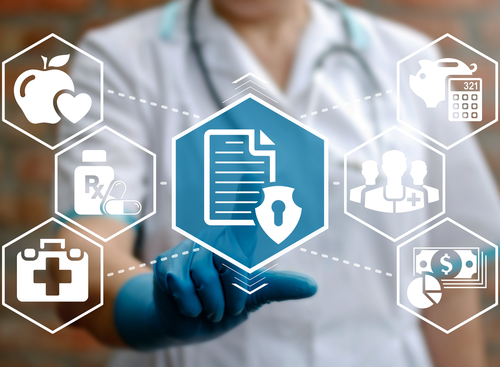When you think about computer hackers who want to steal your personal information, you probably assume that they’re after stuff like your credit card accounts and Social Security number. While cybercriminals wouldn’t turn down the chance to get a hold of this type of personal data, they’re actually even more interested in your electronic medical records.
My Doctor Records? Who Would Want Those?
First, let’s take a look at the statistics. As HIPAA Journal notes, between 2009 and 2017, there were 2,181 healthcare data breaches that resulted in the exposure/theft of (get ready for this huge number), 176,709,305 healthcare records. As for why hackers love this type of data, it’s not because you had a funny rash on your arm in 2015 or because you had the flu last year–it’s because they contain a ton of juicy information. Your health data records typically include not only your name, address, and contact info, but also your date of birth, your Social Security number, insurance info, prescription data, and much more. For cybercrooks, it’s like hitting the jackpot.
Now that you have a better idea of why hackers want your electronic medical records and how common this issue is, here are a few ways you can prevent this cybercrime from happening.
1. Update Your Computer
Yeah, it’s a pain when you have to stop whatever you’re doing to install those annoying computer software updates. But putting off getting the latest updates will leave your computer and other devices way more vulnerable to attack. So take the time to do those software updates–especially the security patches.
2. Consider Identity Theft Protection
Another way to help protect your computer from digital hacks is by investing in an identity theft protection program that includes an alert system for unusual activity. These programs use innovative monitoring technology and alert tools to proactively keep an electronic eye on your personal information. This way, if a cybercriminal does hack into your medical data, the identity theft protection professionals will pick up on it and will let you know right away.
3. Vary Your Passwords
Yes, it is way easier to use your dog’s name for all of your passwords, but to keep your data as safe as possible, a strong, unique password for each and every account–including the one at your doctor’s office. Change your passwords every 30 days or so, and never store your passwords on your computer or phone.
4. Use a Different Email Address at Your Doctor’s Office
If you have a backup email address that you rarely use, consider giving this one when you fill o ut your medical paperwork. This is especially important if your bank, credit card companies, car loan company, and other places have your regular email address on file. This will help make your electronic records a bit less useful to a hacker since it’s not linked to everything else. If you don’t have a second email address, you can easily get one with a company like Gmail or Hotmail.
Keep Your Records as Healthy as You Are
Hackers are always looking for ways to gain access to our personal data, and electronic medical records are goldmines of info. Now that you know about the risks, you can take the necessary steps to protect your sensitive medical data and keep it out of the hands of hackers.




